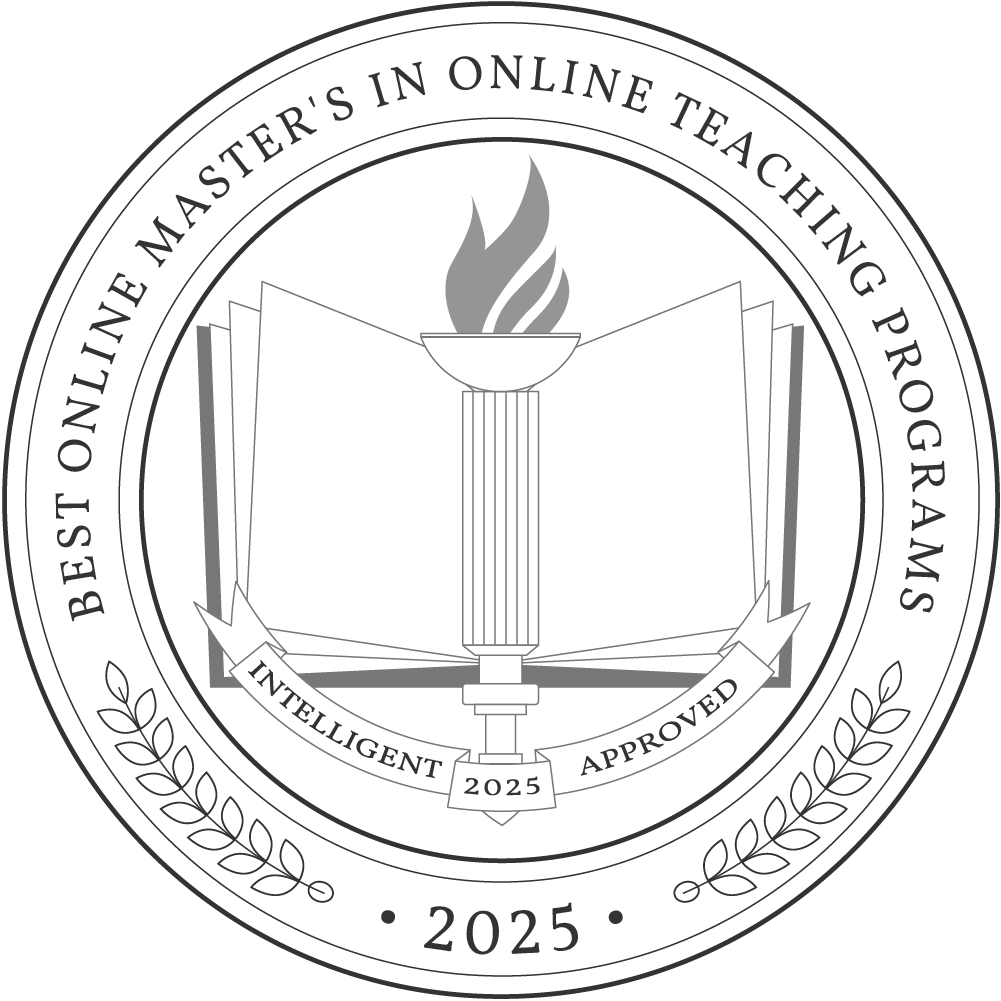Students who graduate with a master’s degree in online teaching can pursue careers as teachers, school administrators, instructional coordinators, and training and development specialists.
According to the Bureau of Labor Statistics, the median pay for high school teachers is $65,220, while instructional coordinators make $74,620. And according to the National Center for Education Statistics, the average annual tuition for a graduate degree program is $12,596 at public institutions and $28,017 at private institutions. Completing this degree typically takes between one to two years of full-time study.
Why Trust Us
The Intelligent.com Higher Education Team is dedicated to providing students with independent, equitable school and program rankings and well-researched resources. Our expert-driven articles cover topics related to online colleges and programs, paying for school, and career outlooks. We use data from the U.S. Department of Education’s College Scorecard, the National Center for Education Statistics, and other reputable educational and professional organizations. Our academic advisory team reviews content and verifies accuracy throughout the year for the most current information. Partnerships do not influence rankings or editorial decisions.
- Analyzed over 2,000 national, accredited, and nonprofit colleges and universities
- 800+ rankings pages are reviewed and updated yearly
- Content is informed by reputable sources, surveys, and interviews with academic advisors and other experts
- Over 100 data points are reviewed for accuracy and quality throughout the year, including sources
How we rank schools
Our list features the best online Master’s in Online Teaching programs at top colleges nationwide. Each school featured is a nonprofit, accredited institution — either public or private — with a high standard of academic quality for post-secondary institutions.
We evaluated each school’s program on tuition costs, admission, retention and graduation rates, faculty, reputation, and the student resources provided for online students. We collected data from trusted sources like the National Center for Education Statistics, individual school and program websites, school admissions counselors, and other data sources. Then, we calculated the Intelligent Score on a scale of 0 to 100 based on the following criterion:
Academic Quality:
- Admission rate versus enrollment rate
- Retention rate of students who return after year one
- Accreditation status (regional and programmatic)
- Nonprofit status, both private and public institutions
Graduation Rate
- Overall graduation rate
- Total number of currently enrolled students, including diversity metrics
- Student-to-faculty ratio
Cost and ROI
- In-state and out-of-state per-credit tuition rates and fees
- Required credits to graduate
- Earning potential after graduation
- Availability of federal student loans, scholarships, and other financial aid options
Student Resources
- Available student services for online-only and hybrid programs
- On-campus amenities like tutoring centers and the number of libraries
Read more about our ranking methodology.
Best 20 Accredited Online Master’s in Online Teaching Programs
FiltersInstitution Type
Status
- Intelligent Score
- Alphabetically By University Name
- Acceptance Rate
- Enrollment
- In-state Graduate Tuition
- Out-of-state Graduate Tuition
- In-state Undergraduate Tuition
- Out-of-state Undergraduate Tuition

Georgia Southern University
Intelligent Score: 99.32In-state: $4,371
Out-of-state: $15,425
In-state: $4,986
Out-of-state: $4,986
SAT: 993-1170
ACT: 18-24
$358
Online
National Council for Accreditation of Teacher Education
36-45
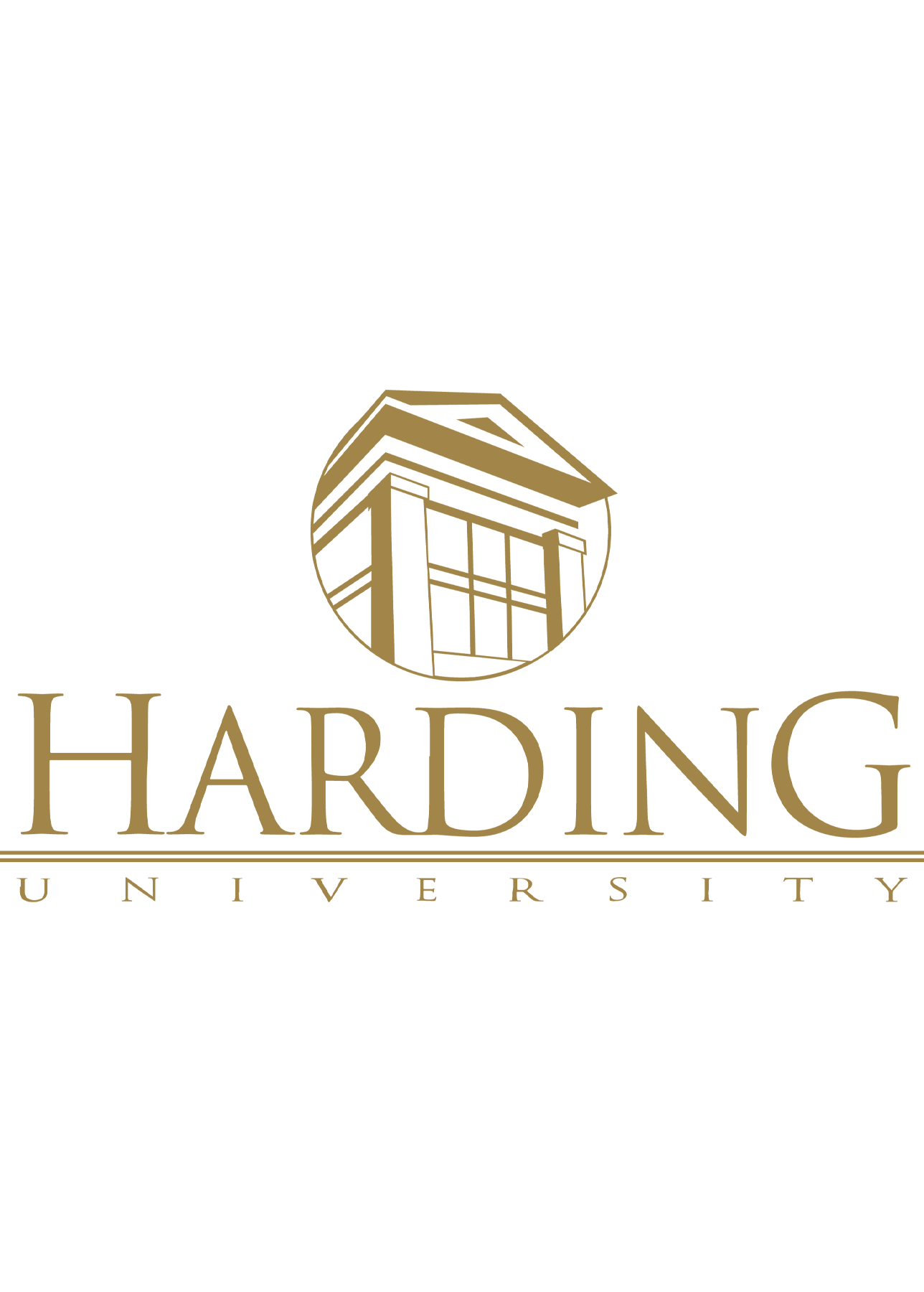
Harding University
Intelligent Score: 99.10In-state: $21,000
Out-of-state: $21,000
In-state: $11,388
Out-of-state: $11,388
SAT: 1060-1290
ACT: 21-29
$442
Online
Higher Learning Commission
30
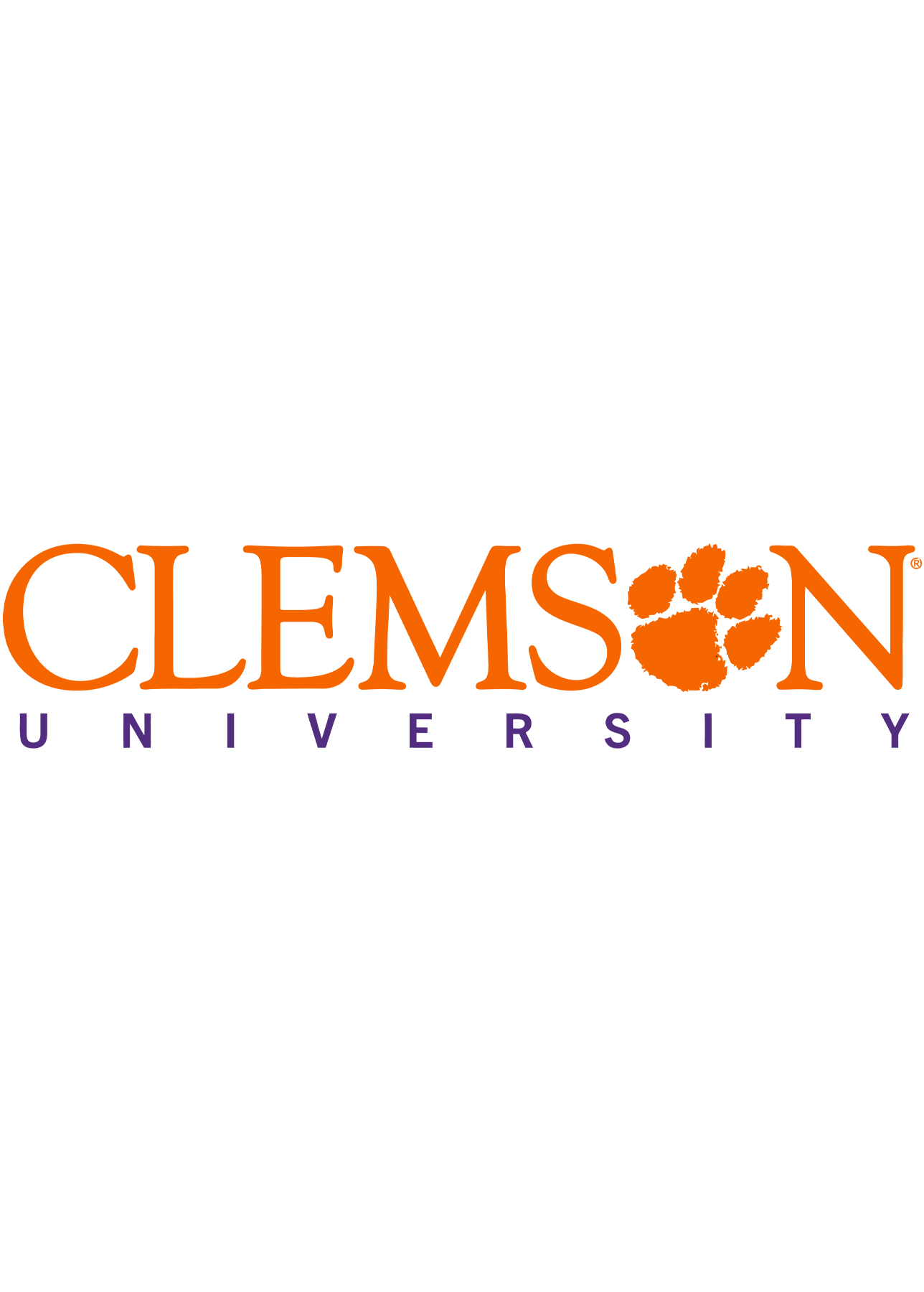
Clemson University
Intelligent Score: 98.95In-state: $14,118
Out-of-state: $37,110
In-state: $10,600
Out-of-state: $10,600
SAT: 1210-1390
ACT: 27-32
$515
Online
Southern Association of Colleges and Schools Commission on Colleges
30

Arkansas State University
Intelligent Score: 96.53In-state: $5,232
Out-of-state: $10,800
In-state: $4,986
Out-of-state: $4,986
SAT: 1000-1220
ACT: 20-26
$340
Online
Council for the Accreditation of Educator Preparation
36-39
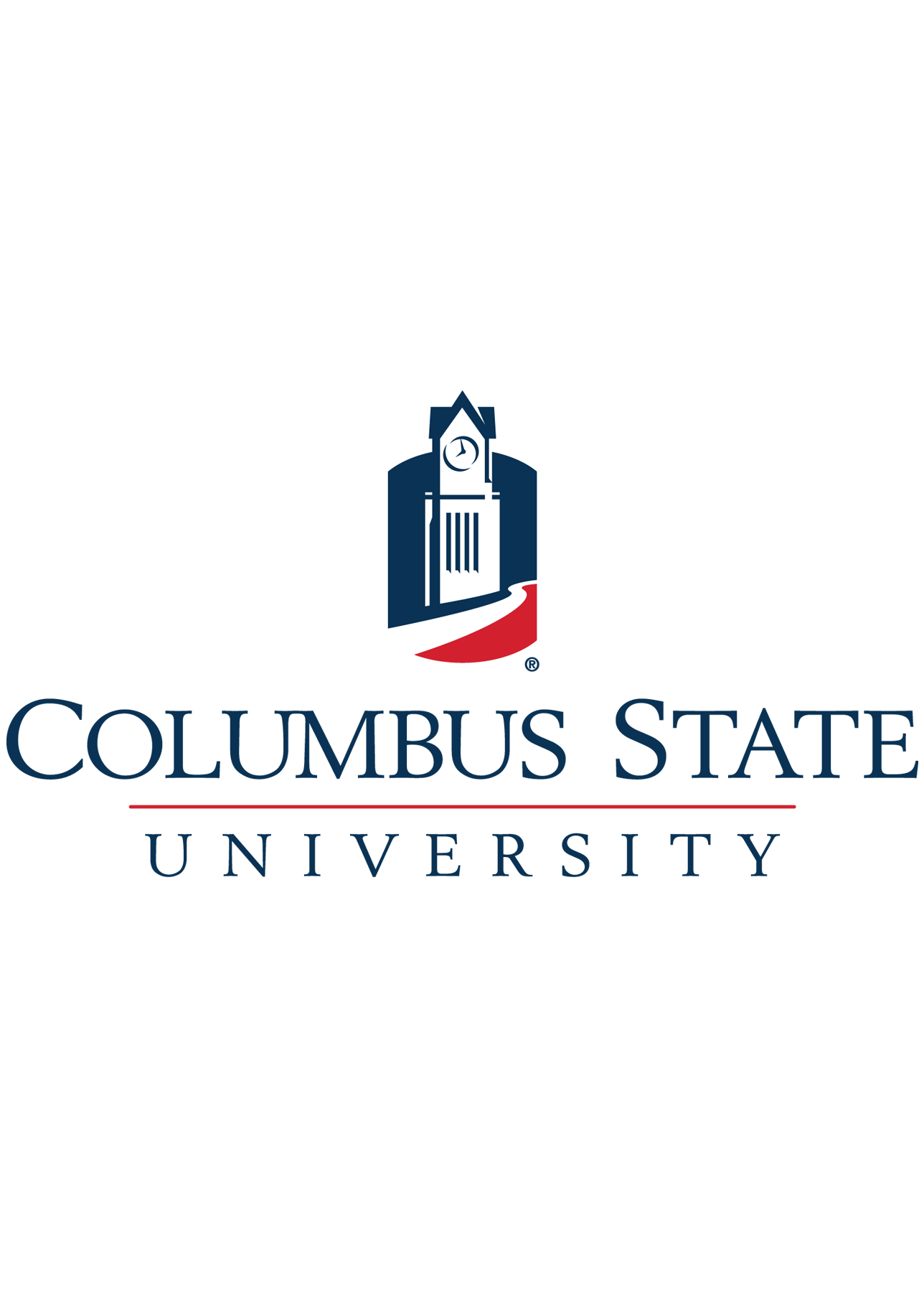
Columbus State University
Intelligent Score: 95.49In-state: $4,371
Out-of-state: $15,425
In-state: $6,300
Out-of-state: $6,300
SAT: 860-1080
ACT: 17-23
Resident: $301
Non-Resident: $817
Online
National Council for Accreditation of Teacher Education
30.0
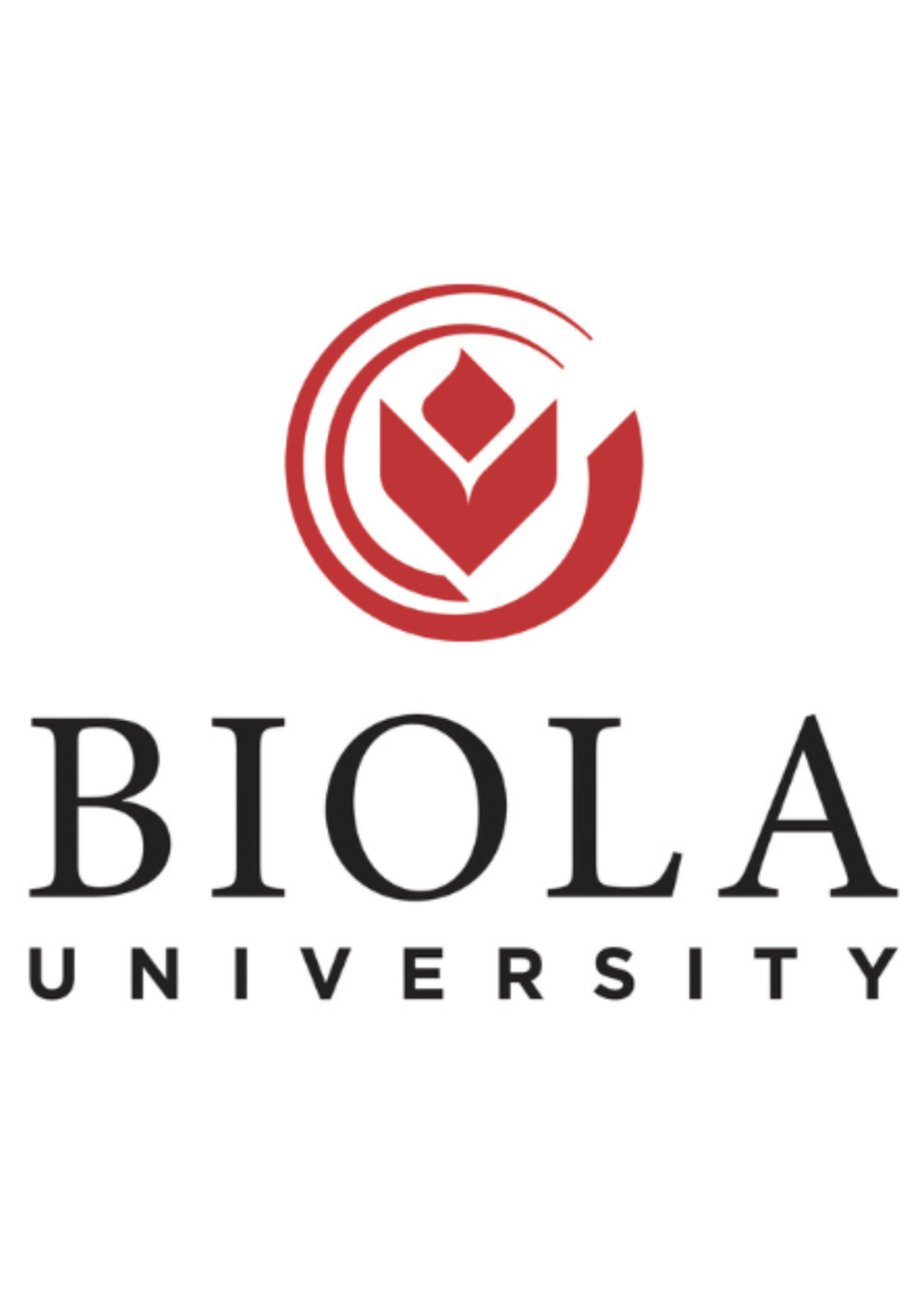
Biola University
Intelligent Score: 95.09In-state: $43,512
Out-of-state: $43,512
In-state: $11,772
Out-of-state: $11,772
SAT: 1070-1290
ACT: 22-29
California-based Biola University’s online Master of Arts in Teaching degree can be tailored to each student’s interests and includes concentrations in a multitude of areas, including special education. Students who complete the 12 credits of this concentration earn an institution-sponsored certificate in special education. If the concentration fieldwork is completed in California, the concentration can be applied toward a state-issued credential in special education. Most students complete the Christian-centered program in 18 to 24 months. Faculty have expertise in the special education field with associated research on the subjects of autism spectrum disorders, learning disabilities, emotional and behavior disorders, and dyslexia.
$698
Online
WASC Senior College and University Commission
30-60

Liberty University
Intelligent Score: 92.76In-state: $14,791
Out-of-state: $14,791
In-state: $7,935
Out-of-state: $7,935
SAT: 1040-1250
ACT: 21-29
$565
Online
Council for the Accreditation of Educator Preparation
45

University of Southern California
Intelligent Score: 91.67In-state: $59,260
Out-of-state: $59,260
In-state: $47,880
Out-of-state: $47,880
SAT: 1340-1530
ACT: 30-34
$2,267
Online
Council for the Accreditation of Educator Preparation
30
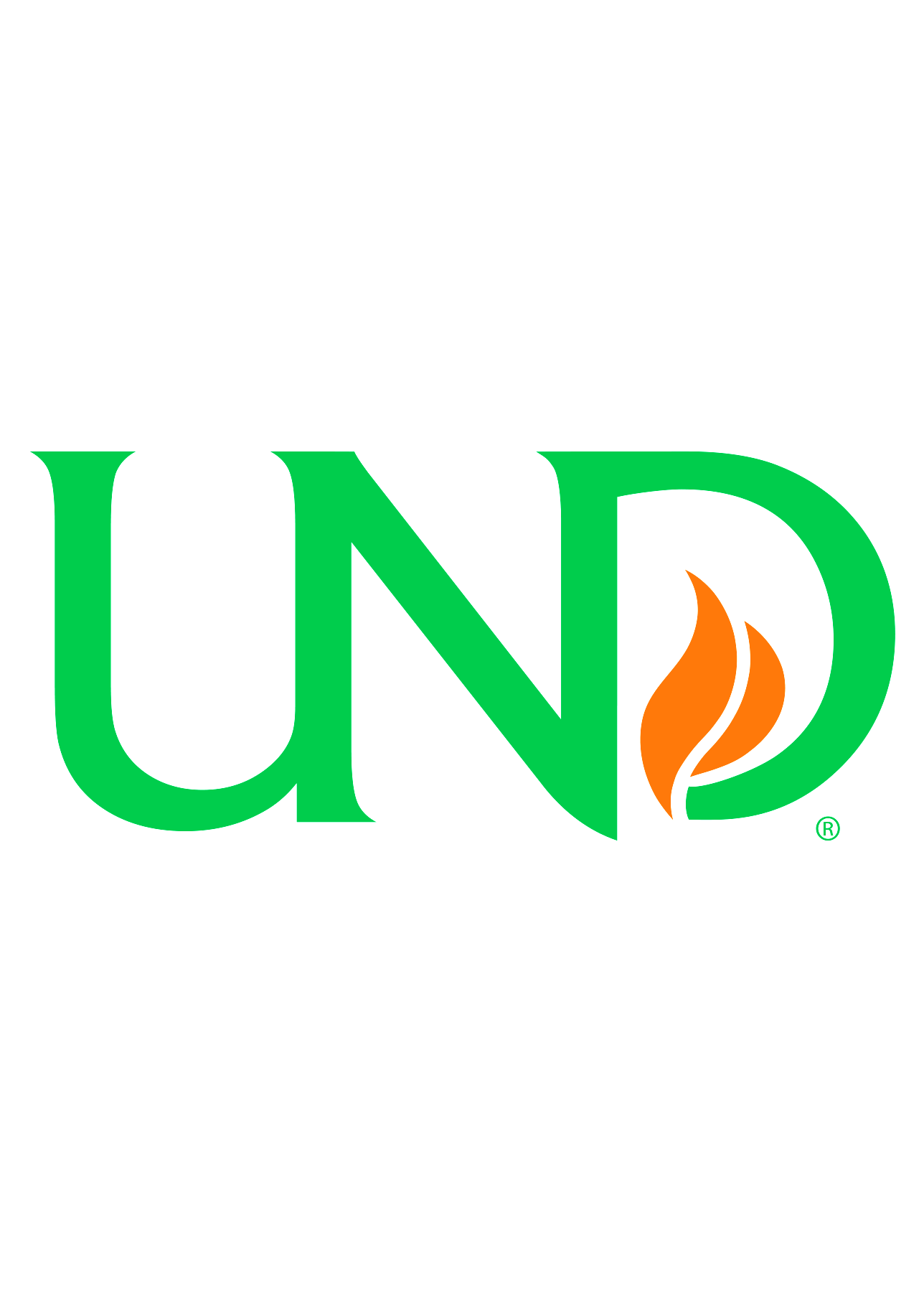
University of North Dakota
Intelligent Score: 91.65In-state: $8,540
Out-of-state: $12,810
In-state: $11,060
Out-of-state: $11,060
SAT: 1000-1230
ACT: 20-27
The University of North Dakota’s Master of Science in Teaching & Leadership online program offers numerous specializations to choose from, including elementary education. It is one of only a few schools in the country that offers a K-12 classroom assessment and grading course. Students can also pair their master’s degree with a graduate certificate in instructional coaching to enhance marketability and teaching ability with students and colleagues. The program is synchronous with classes in real time and generally takes two years to complete. Unique perks of the program include unlimited academic coaching, free online tutoring, and full-online access to the school’s library and writing support center.
$552
Online
Higher Learning Commission
30

The University of North Carolina at Charlotte
Intelligent Score: 91.1In-state: $7,019
Out-of-state: $34,198
In-state: $10,552
Out-of-state: $10,552
SAT: 1280-1490
ACT: 28-33
Resident: $256
Non-Resident: $1,091
Online
Council for the Accreditation of Educator Preparation
30-36
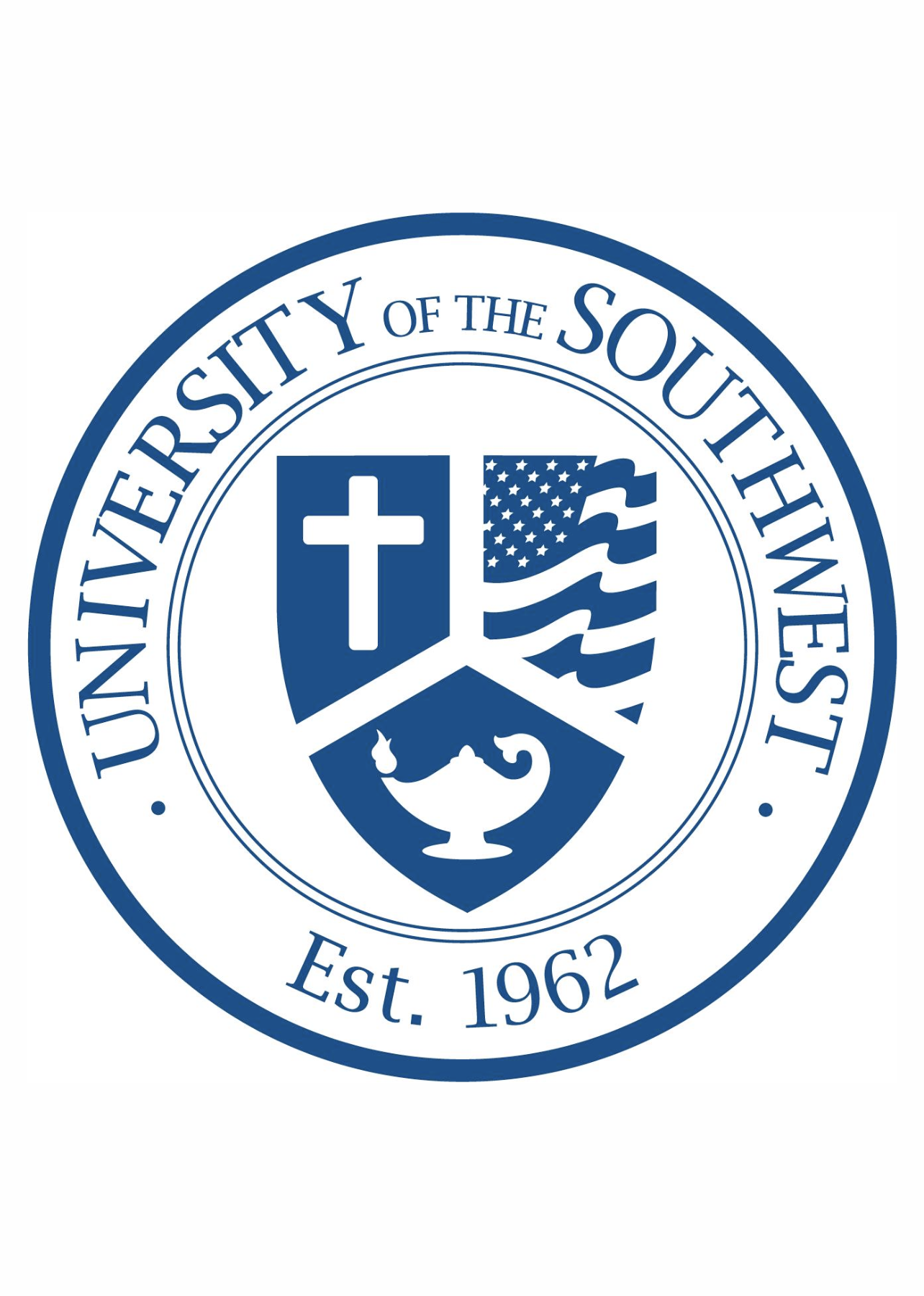
University of the Southwest
Intelligent Score: 89.69In-state: $16,000
Out-of-state: $16,000
In-state: $22,500
Out-of-state: $22,500
SAT: N/A
ACT: N/A
$649
Online
Higher Learning Commission
30.0

Fordham University
Intelligent Score: 89.52In-state: $54,730
Out-of-state: $54,730
In-state: $23,112
Out-of-state: $23,112
SAT: 1230-1410
ACT: 27-32
$1,736
Online
Higher Learning Commission
36-45
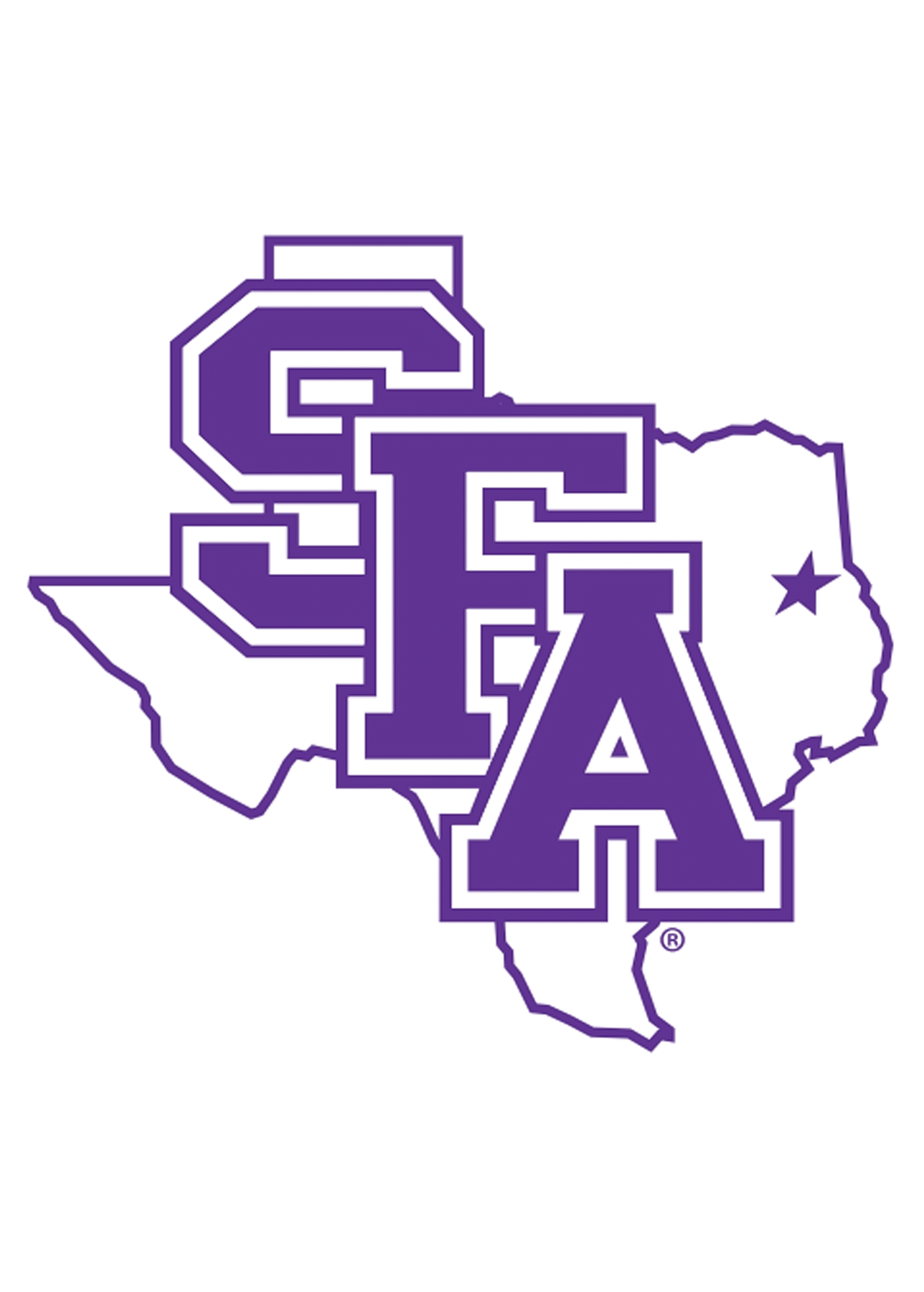
Stephen F. Austin State University
Intelligent Score: 89.47In-state: $7,842
Out-of-state: $18,858
In-state: $5,262
Out-of-state: $5,262
SAT: 980-1150
ACT: 18-24
Resident: $588
Non-Resident: $1,008
Online
Southern Association of Colleges and Schools Commission on Colleges
36

Western Governors University
Intelligent Score: 89.09In-state: $6,380
Out-of-state: $6,380
In-state: $7,500
Out-of-state: $7,500
SAT: N/A
ACT: N/A
$441
Online
Council for the Accreditation of Educator Preparation
39-53

University of Maryland Global Campus
Intelligent Score: 87.54In-state: $8,824
Out-of-state: $34,936
In-state: $13,158
Out-of-state: $13,158
SAT: 1270-1480
ACT: 30-34
Resident: $534
Non-Resident: $659
Online
National Council for Accreditation of Teacher Education
30

Boise State University
Intelligent Score: 83.83In-state: $5,532
Out-of-state: $22,452
In-state: $7,110
Out-of-state: $7,110
SAT: 1030-1210
ACT: 21-26
$252
Online
Northwest Commission on Colleges and Universities
33-37
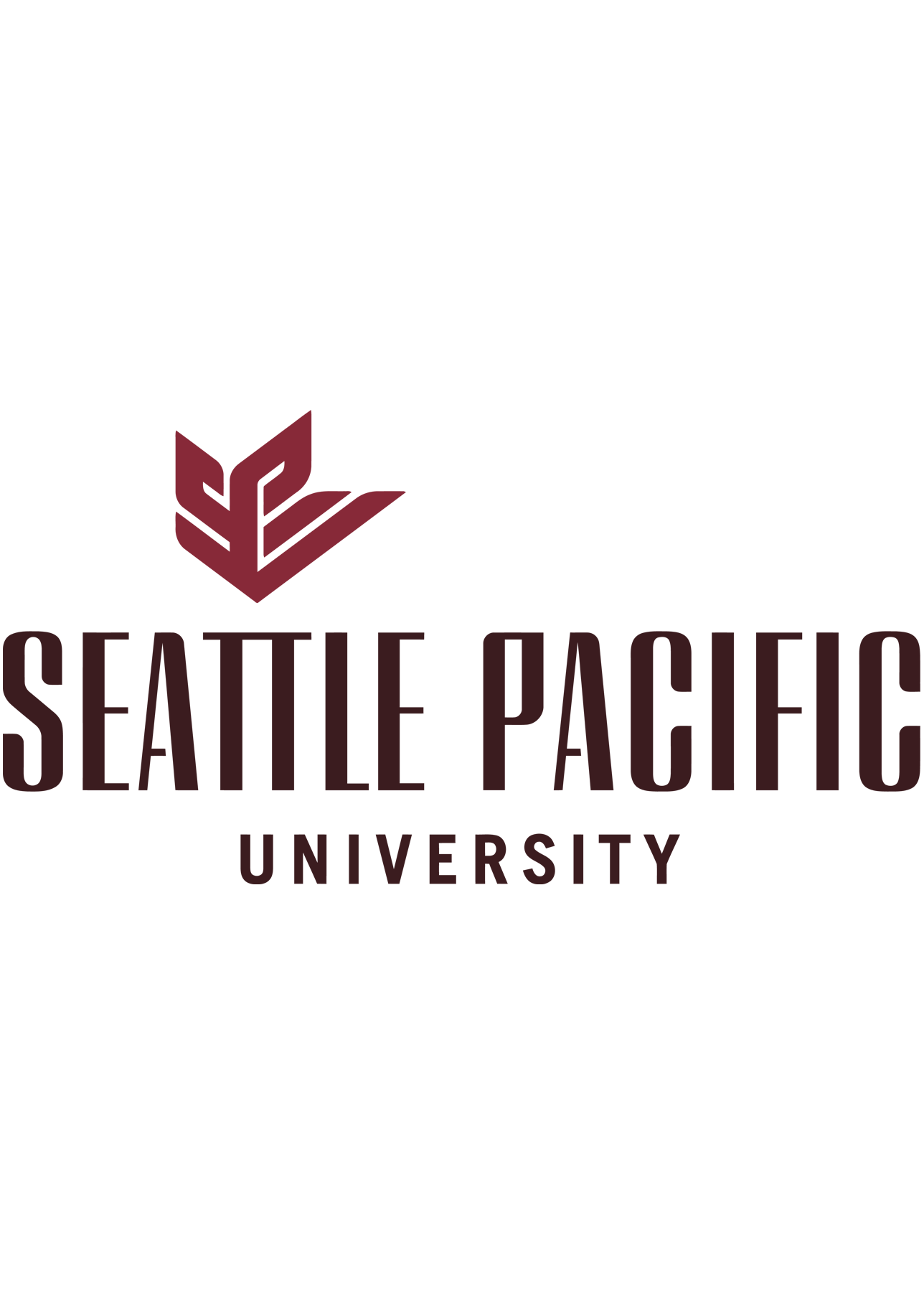
Seattle Pacific University
Intelligent Score: 82.72In-state: $46,728
Out-of-state: $46,728
In-state: $31,896
Out-of-state: $31,896
SAT: 1010-1160
ACT: 20-27
$670 - $735
Online
Northwest Commission on Colleges and Universities
56-62
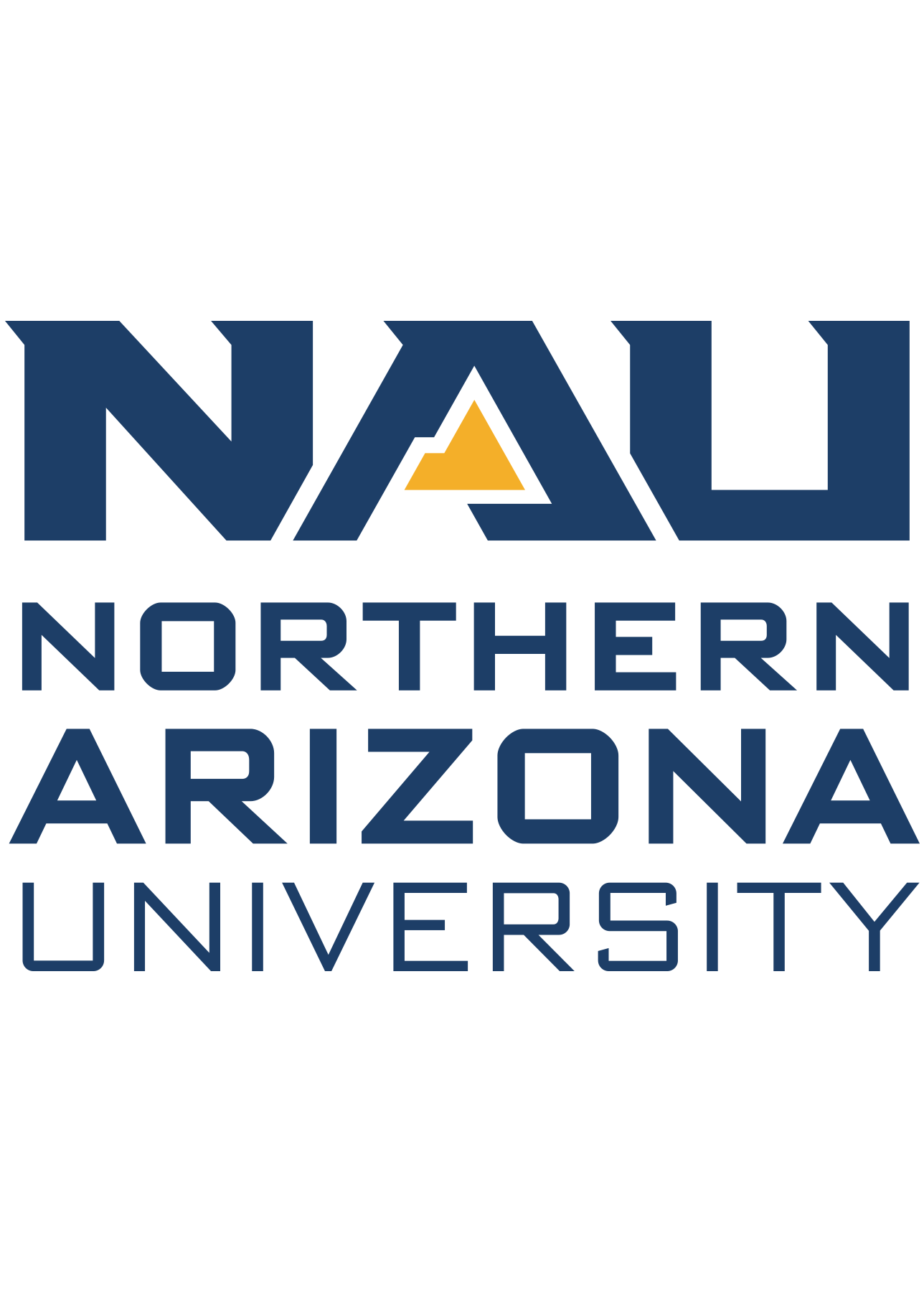
Northern Arizona University
Intelligent Score: 81.81In-state: $10,243
Out-of-state: $16,248
In-state: $10,309
Out-of-state: $10,309
SAT: N/A
ACT: N/A
$846
Online
Council for the Accreditation of Educator Preparation
30-36
How to Choose an Online Master’s in Online Teaching Program
Choose your area of study
This degree is typically offered as a Master of Arts (MA), Master of Science (MS), or Master of Education (MEd). Some universities offer a standalone master’s in online education degree, while others only offer online education as a concentration within a master’s in education program. Many programs will allow you to specialize in a particular niche in this field, such as corporate training or curriculum design. If you already know what you would like to do after you graduate, look for programs that closely match these career goals.
Research schools and programs
You should only apply to institutions that have been approved by a DOE-recognized regional accrediting organization, such as the New England Commission of Higher Education or Northwest Commission on Colleges and Universities. These organizations evaluate schools to ensure they provide students with a high-quality education. Those who attend a school that isn’t regionally accredited may be unable to access financial aid or transfer credits to another institution if needed.
If you’re interested in a teaching career, look for programs that have been accredited by the Council for the Accreditation of Educator Preparation (CAEP). This organization has particularly high standards for education-related programs.
You should also consider the following factors as well:
- What is the cost of the program? Along with accreditation, this is usually one of the determining factors in choosing a program. Focus on programs that fall within the amount you can spend for the degree so that you only spend time researching programs within your budget.
- Where is the school located? Most universities offer various services, amenities, and events that are available only on campus. These may include orientations, career fairs, meet-and-greets, student clubs and organizations, sporting events, and more. Although the actual master’s degree program is online, students may wish to participate in some of these other activities. If so, the school’s location is something to consider when choosing a program.
To learn more about any schools that you’re interested in, you can visit the school’s website, contact an admissions counselor, follow the school on social media, or attend an in-person or virtual open house.
Prepare for tests and applications
Admissions requirements vary with each university, so check the school’s website for details. Some institutions set specific deadlines for submission of applications and related documents, while others offer rolling admissions. The program’s start date may have a bearing on this, as online programs may or may not start at the same time as on-campus classes. Also, some universities require GRE or Praxis scores for admission. Transcripts, letters of recommendation, and a personal statement are often required as well. Always contact an admissions counselor to ensure you have the most accurate information regarding requirements and deadlines.
Select your program
After you’ve selected your area of study and researched various schools and programs, it’s time to narrow down your selection. Since no two programs are exactly the same, look at the pros and cons of each. Determine which features are most important to you personally. Compile a list, in order of preference, of the programs you would like to take, and then apply to them all.
Before making your final decision, review your needs and goals again. Do you plan to attend school full-time or part-time? Do you want your program to be as online as possible, or are you fine with a hybrid program that has a fair amount of in-person requirements? Some programs offer asynchronous courses, which can be completed at your own pace, while others only offer synchronous courses, which involve remotely attending lectures and completing assignments at the same time as other students — which of these two online learning formats do you prefer? Your school should accommodate your scheduling needs and learning preferences.
Determine how you’ll pay for your degree
Eligible students can get financial aid from the U.S. government through grants, loans, and work-study programs. To receive such assistance, students must submit the Free Application for Federal Student Aid (FAFSA).
If students previously earned graduate-level credits, they may be able to transfer them to their current program, reducing the number of courses needed for the degree. Schools usually offer discounted tuition to past and present members of the military. Additionally, if your schedule allows, a part-time job can help pay for the degree. Those who already work in the field should see if their employer offers tuition assistance benefits as well. Contact the school’s financial aid office to help you explore all options for paying for your degree.
What Can You Expect from an Online Master’s in Online Teaching Program?
Online teaching and in-person teaching share many similarities, so this program covers the skills needed to become a qualified and effective educator.
It also delves into other areas, such as how to involve students and keep them engaged in an online setting, how to use technology to maximize the online experience, the theory and culture of online learning, what online learning management systems are available and how they differ from one another, how to provide individualized feedback, and other subjects relevant to online education.
Online students receive course material via an online learning platform. Popular platforms include Blackboard, Canvas, and Moodle. Alternatively, the school may have its own platform. After logging on to their personal portals, students can access the course syllabus, schedules, audio-video material, reading material, class assignments, grades, and more. They also have access to online chats and message boards, which facilitate communication with other students as well as instructors.
Potential courses you’ll take in an online master’s in online teaching degree program
- Technology tools for online instruction. In addition to acquiring skills as an educator, online teachers must know what technology tools are available for online education and how to use them. This course covers how to utilize various software programs and applications, operating systems, mobile devices, and learning platforms for teaching in an online environment.
- Theory and culture of online learning. Online teaching differs in many ways from in-person instruction. This course discusses these differences in depth and helps students understand teaching methods and approaches that are most effective when providing education online.
- Field experience. Most teaching programs require students to participate in a field experience where they teach in a real-world environment. The amount of time required partially depends on the student’s prior experience and what degrees/certificates they already have.
- Foundations of distance education. In this course, students explore the history of distance education and how it has rapidly evolved over the past few years. It covers various policies and practices and how the latest technologies have changed online learning and teaching.
What Can You Do With an Online Master’s in Online Teaching?
Career outlook
Individuals with a master’s degree in online teaching have a range of career options, as they can leverage their expertise in instructional design, technology integration, and online pedagogy. Here are some job options available for someone with a master’s degree in online teaching:
- Instructional coordinator — Develop, implement, and assess the effectiveness of educational materials.
- Median annual salary: $74,620
- Projected employment growth (through 2032): 2%
- New job openings projected: 19,200 annually
- Training and development manager — Design and manage an organization’s employee training programs.
- Median annual salary: $125,040
- Projected employment growth (through 2032): 6%
- New job openings projected: 3,500 annually
- Postsecondary education administrator — Help manage administrative functions and develop academic policies for a college or university.
- Median annual salary: $102,610
- Projected employment growth (through 2032): 4%
- New job openings projected: 15,300 annually
Online Master’s Degree in Online Teaching Frequently Asked Questions
How do I apply to an online master’s in online teaching degree program?
You can generally submit your applications online or through the mail. A bachelor’s degree from an accredited institution is required but doesn’t necessarily have to be in a related field. Some programs require applicants to have a teacher’s license or prior teaching experience. Transcripts should be submitted on time, and there is usually a 2.5-3.0 minimum GPA requirement. Applicants should be prepared to submit their resumes, personal statement about teaching interests or previous teaching experience, and letters of recommendation.
Many universities require proof of U.S. citizenship or residency, and if English is not the applicant’s first language, test scores proving English proficiency are required. Applicants should always contact an admissions counselor to confirm all admissions requirements and submission deadlines before applying.
How much does an online master’s in online teaching degree cost?
An online master’s in online teaching costs between $11,000 to $35,000 in total tuition. Fees involving technology and software, books, and additional university services are not usually included in tuition. At public universities, in-state residents often pay lower tuition than out-of-state students, although for online programs, students may be charged the same tuition regardless of where they live.
How long does it take to earn a master’s degree in online teaching online?
Depending on the institution, this program requires 30-36 credits and can be completed with one or two years of full-time study. Part-time options are available at some schools — this would take longer to complete. Even so, students are usually required to complete the degree in five years or less.
Is an online master's in online teaching worth it?
Earning an online master’s in online teaching offers numerous advantages in the evolving landscape of digital education. The demand for online educators is rising, and the skills acquired during this program position graduates for success in various academic roles.
Also, online programs eliminate the need to commute to campus, which can save you a significant amount of time. This is an especially good option for students who are trying to balance their education with a full-time job or family responsibilities.
Read More about Online Master’s in Online Teaching Degrees
Compare School Options
Related Degrees
- Child Development
- K-12 Education
- Coaching
- Higher Education
- Physical Education
- Gifted and Talented Education
- Educational Leadership
- Educational Administration
- Secondary Education
- Assessment and Measurement
